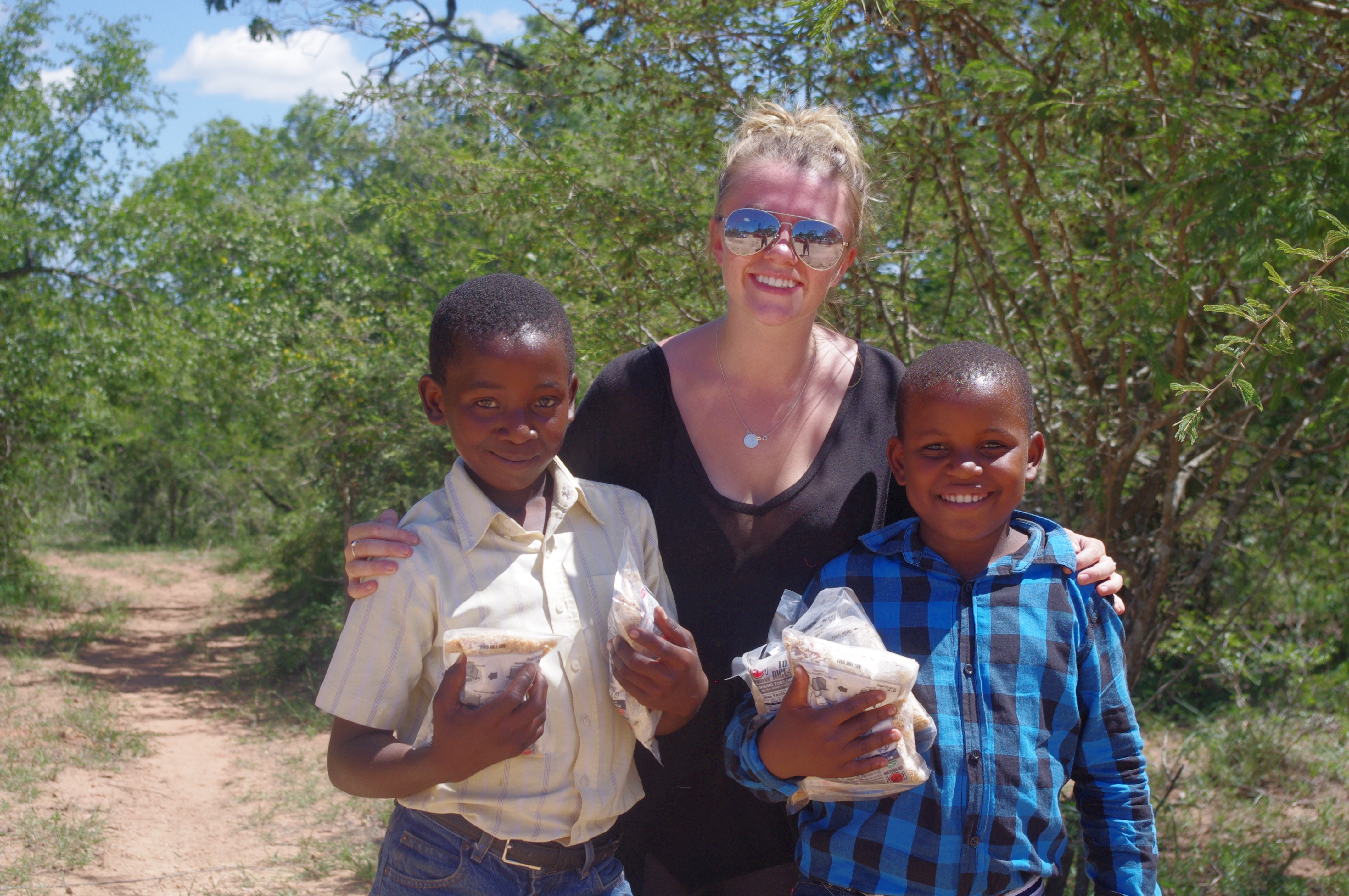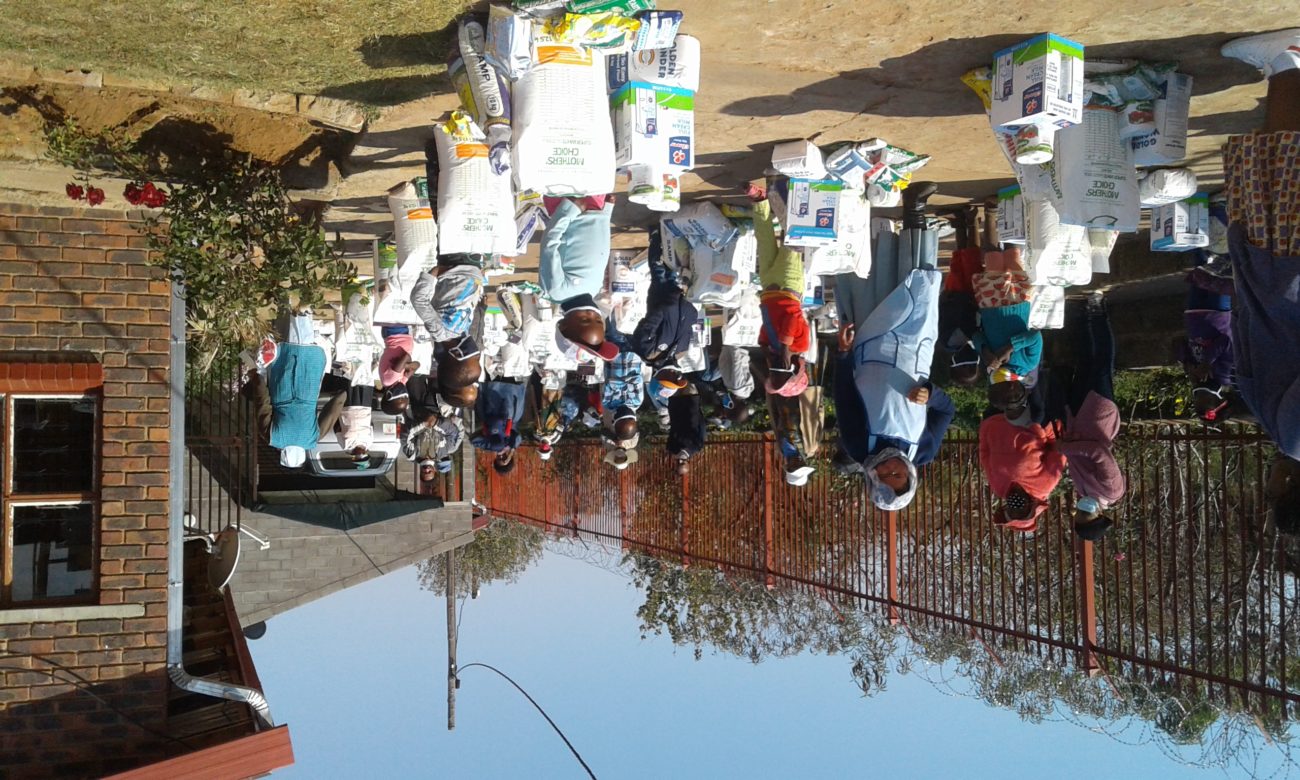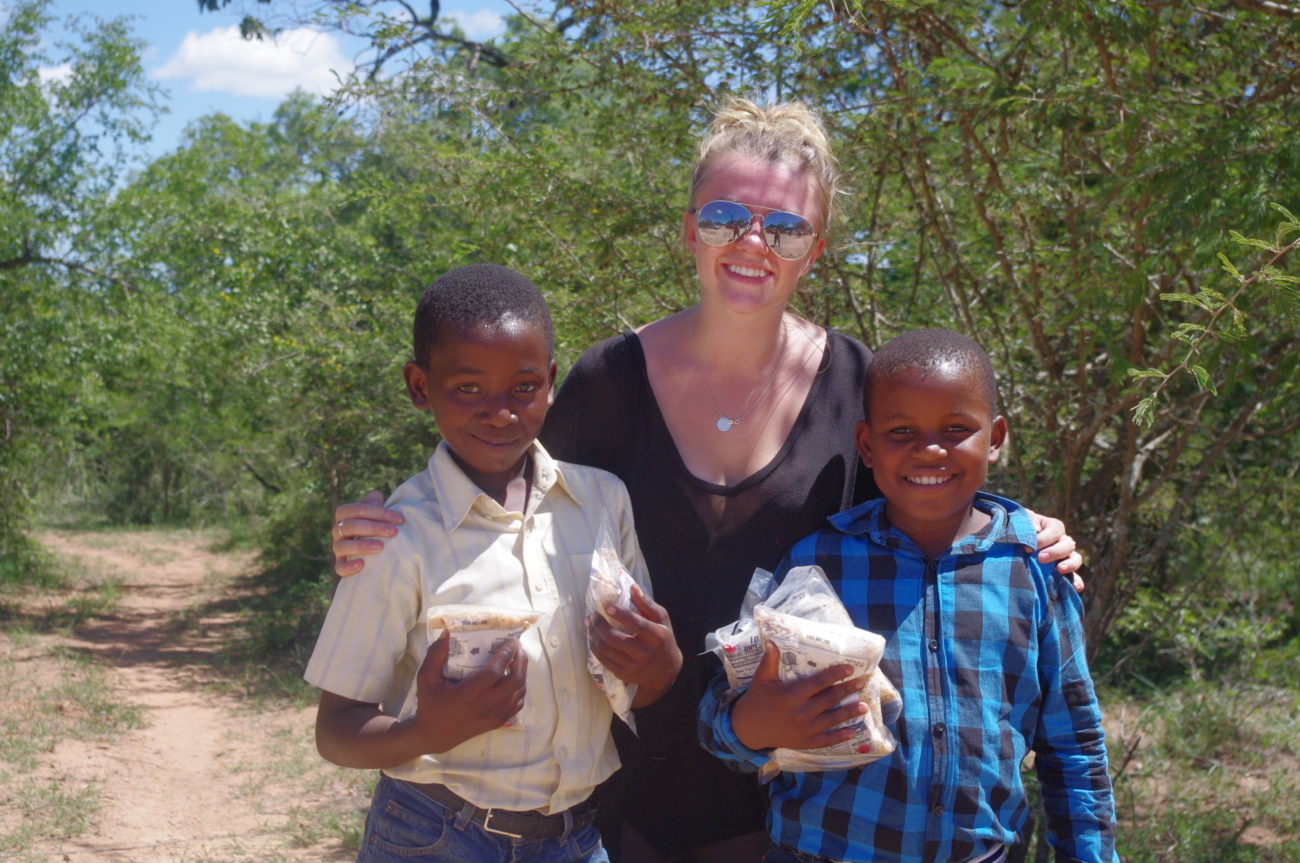SWAZILAND: Students in Salesian Programs Receive Better Nutrition Thanks to Stop Hunger Now Donation

(MissionNewswire) Youth participating in Salesian-run Manzini Youth Care programs in the city of Manzini in Swaziland have received access to better nutrition thanks to a recent shipment of fortified rice-meals. The donation was made possible through an ongoing partnership between Salesian Missions and Stop Hunger Now, an international relief organization that provides food and life‐saving aid to the world’s most vulnerable.
The donated rice-meals will provide nutrition for 320 students at the Enjabulweni Free Primary School, one of the schools under the Manzini Youth Care umbrella. The meals are provided to students during the school day and serve as an incentive for families to send their children to school. As a result of the donation, students are thriving. Many have gained weight, suffered fewer illnesses and become more focused on their studies. Teachers are seeing better student performance in class, a decrease in absenteeism and an increase in program enrollment rates as a result of the feeding program.
“Access to nutritious meals allows youth to be better prepared to take part in school activities and focus on their education,” says Father Mark Hyde, executive director of Salesian Missions, the U.S. development arm of the Salesians of Don Bosco. “Prepared students are more likely to learn valuable skills that will help them gain employment and break the cycle of poverty in their lives while enabling them to give back to their communities.”
The shipment also included bars of soap and girl’s dresses from Little Dresses of Africa, a nonprofit organization that provides relief to vulnerable children throughout Africa and beyond. As part of Manzini Youth Care, Salesian missionaries provide education and shelter for 28 girls age 8 to 21 at the Zakhele and Ngwane Park homes. Girls in these programs will benefit from the food aid donation as well as the soap and dresses.
Manzini Youth Care was established in the 1970s and provides services to marginalized youth including free primary school for children who have dropped out of school due to poverty, two vocational training centers for older youth, residential care for former street children and a drop-in school for street children when they first come in off the streets. Manzini Youth Care also serves the communities surrounding the city of Manzini to help residents improve their living standards, sanitation and food security.
“The poverty situation in Swaziland is getting worse and during my 45 years here I have experienced so many really desperate cases,” says Father Larry McDonnell, director of Manzini Youth Care. “More and more the signs of an ever deepening poverty are knocking more regularly on our door. The food donation is making a difference for our programs. We are sharing the rice with all seven of the poorer Salesian associated schools including two high schools and five primary. For many, the school meal is the only nutritious intake most of the children will get each day.”
Swaziland is a landlocked nation almost entirely contained within the northeast corner of South Africa. The country faces numerous challenges including poverty, chronic food insecurity, HIV/AIDS and a climate that is often unpredictable. According to the World Food Programme, nearly 25 percent of Swaziland’s children suffer from stunted growth as a result of malnutrition. With 63 percent of the country’s population living below the poverty line, the risk of food insecurity is high. Swaziland also has elevated rates of unemployment and income equality.
Few farmers in the country own agricultural machinery such as tractors or ploughs and as a result, must rely on manual labor and traditional farming methods that require them to spend long hours in the fields producing very little food. Unable to produce enough food to support its population, Swaziland residents are vulnerable to fluctuating food prices from food imports. In addition, many households are coping with the impact of HIV which affects 26 percent of those aged 15 to 49 and 42 percent of pregnant women. The high prevalence of the disease among breadwinners and caregivers further compromises food security.
###
Sources:
World Food Programme – Swaziland




